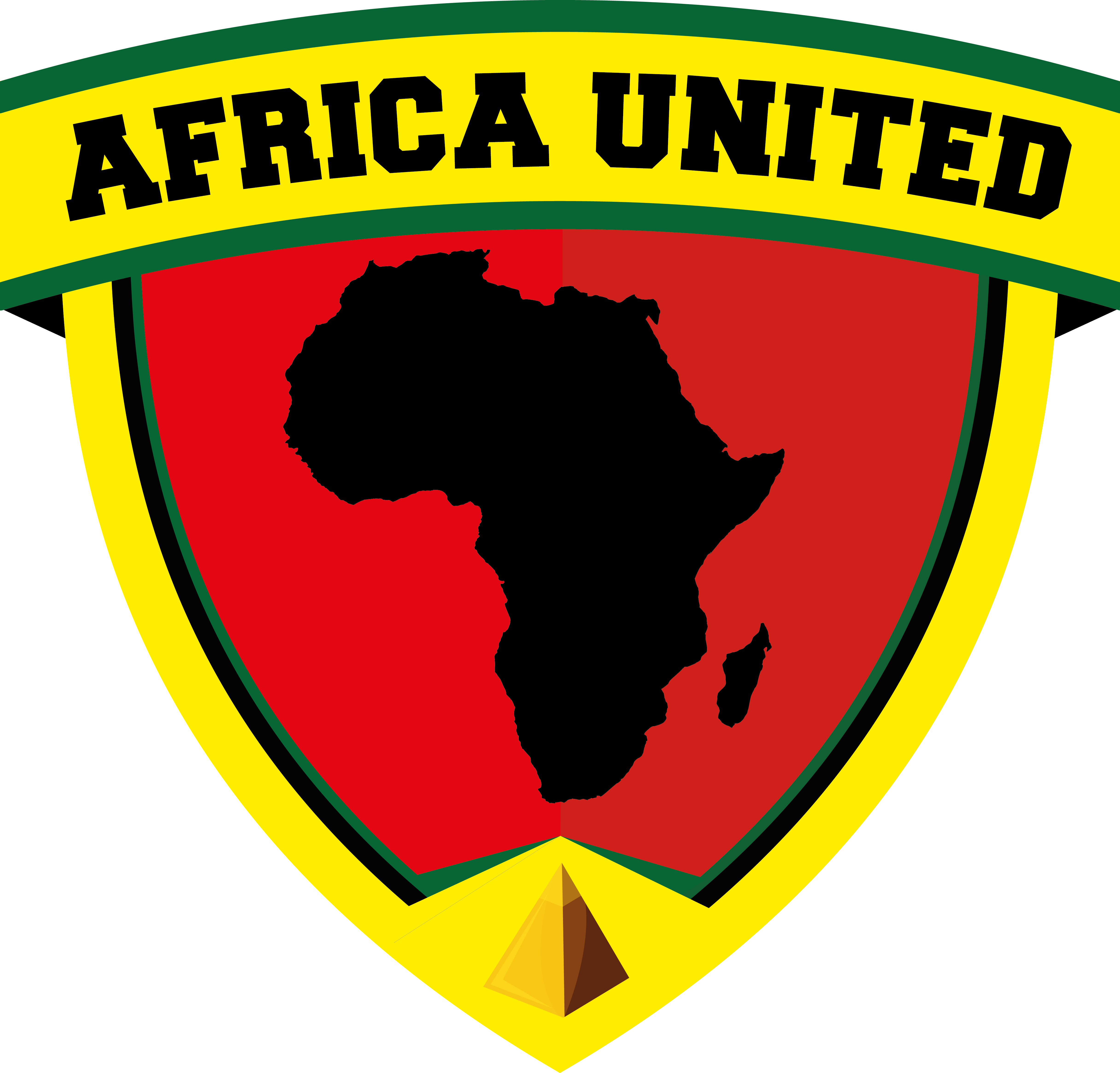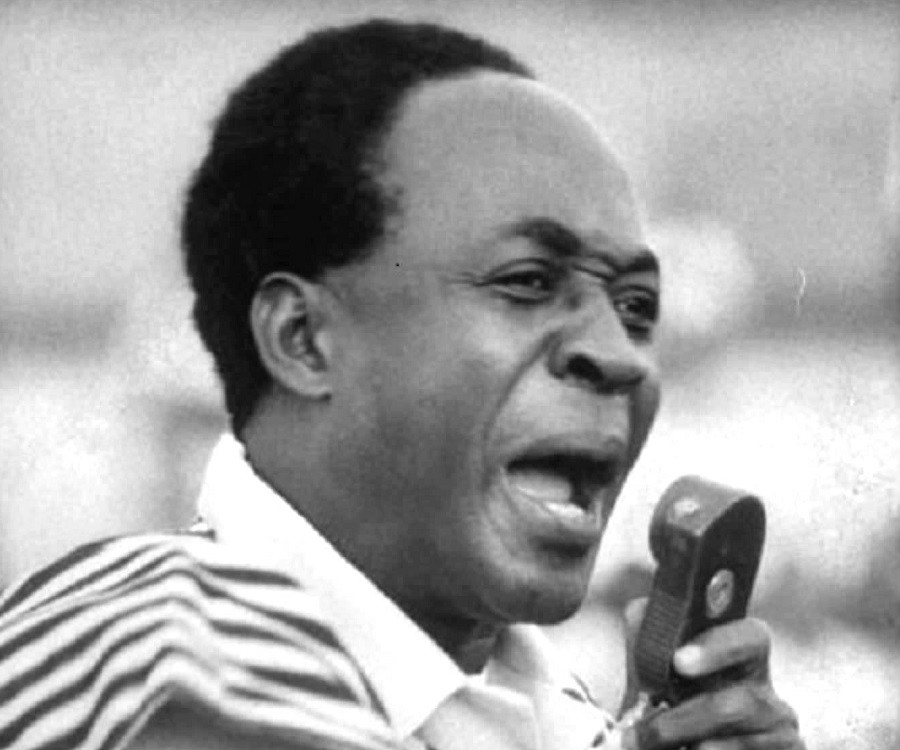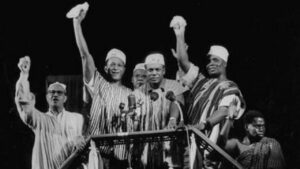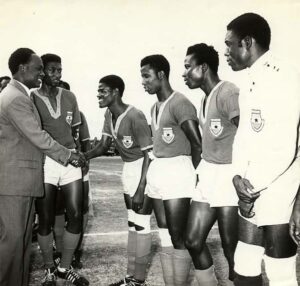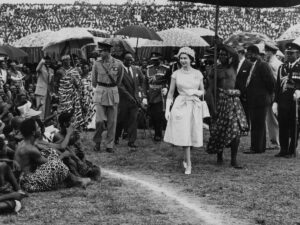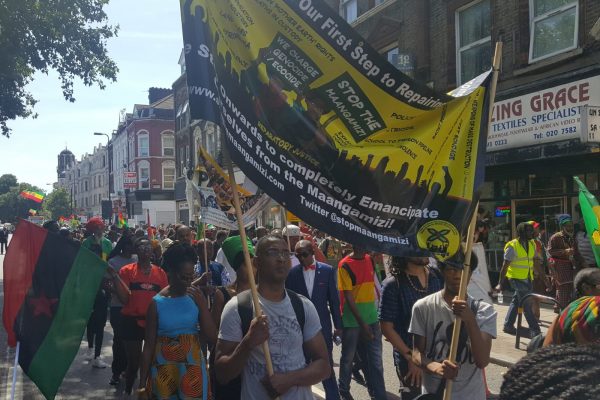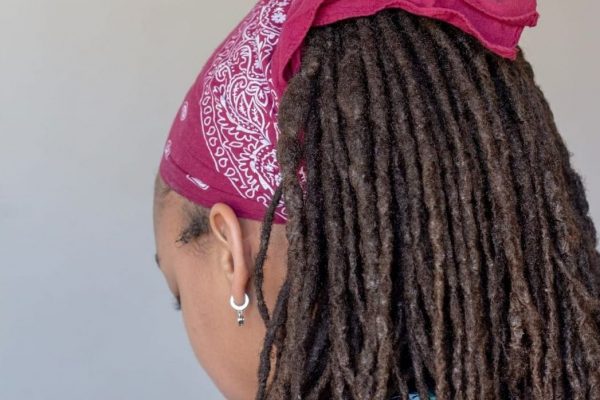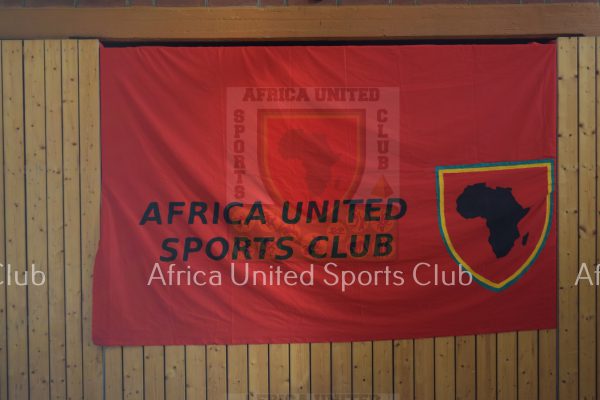Wir bekämpfen Rassismus durch Sport!
Teil I: Perspektiven von Dr. Kwame Nkrumah und Frantz Fanon auf den Afrikanischen Sport
Wir stellen die folgenden Originaltexte für eine kritische Lektüre zur Verfügung. Wir können aus den Perspektiven von Nkrumah und Fanon, die beide wichtige Persönlichkeiten der Afrikanischen Geschichte sind, vieles lernen.
Die Rede von Kwame Nkrumah in Kumasi, am 20. Februar 1960 im Wortlaut:
„Sport und Afrikanische Einheit“
„Ich bin sehr glücklich, heute Abend hier zu sein, um an der Eröffnungsfeier dieses großartigen Sportstadions teilzunehmen, dessen Fertigstellung einen weiteren Meilenstein in unseren Bemühungen markiert, den Sport in Ghana neu zu organisieren. Ich schließe mich den anderen an, die der United Africa Company[1] die Wertschätzung des ghanaischen Volkes für ihren Beitrag zum Bau dieses Sportstadions aussprechen.
Dieses Stadion, zusammen mit seinem Schwesterstadion in Accra, stellt das nach außen gerichtete und sichtbare Zeichen des Wunsches und der Entschlossenheit unseres Volkes dar, zu den Besten in der Welt des Sports gezählt zu werden. Ich hege die Hoffnung, dass dieses Stadion in nicht geringem Maße dazu beitragen wird, dieses Ziel zu erreichen.
Die Convention People’s Party und meine Regierung waren immer bestrebt, den Sport unter der Jugend Ghanas zu fördern. Sport kann nicht nur zur Entwicklung unserer Nation beitragen und die körperliche Fitness unserer jungen Männer und Frauen verbessern, sondern er kann auch eine große Rolle bei der Entwicklung von Einheit und Verständnis zwischen den Regionen Ghanas spielen.
Sport kennt, wie Kunst, Kultur und Wissenschaft, keine territorialen Grenzen. Vor diesem Hintergrund kommt ihm im heutigen Afrika eine weitere, noch wichtigere Rolle zu. Durch internationale Wettkämpfe mit anderen afrikanischen Staaten kann der Sport jene notwendige Basis des gegenseitigen Verständnisses schaffen, die die Verwirklichung unseres Ideals der Einheit in Afrika so sehr unterstützen kann.
Die Jugend Afrikas wird durch die Begegnung beim Sports in den Ländern der anderen lernen, was unsere Ältesten nicht lernen durften – dass alle Afrikaner Brüder mit einem gemeinsamen Schicksal sind. Wenn also auf politischer und wirtschaftlicher Ebene Fortschritte zur Erreichung der afrikanischen Einheit gemacht werden, kann man hoffen, dass der Austausch von sportlichen und kulturellen Aktivitäten Einfluss auf die Schaffung einer gesunden Atmosphäre für die afrikanische Einheit und Unabhängigkeit geltend gemacht haben.
Aus diesem Grund habe ich den Goldpokal für den westafrikanischen Fußballwettbewerb gestiftet, dessen Testphase vor kurzem zu Ende gegangen ist. Aus diesem Grund habe ich auch als Bürger Afrikas meine Absicht verkündet, eine afrikanische Olympiade zu fördern, bei der Athleten aus allen Teilen dieses Kontinents sowie Athleten afrikanischer Herkunft aus der ganzen Welt den Grundstein für eine neue Bewegung legen werden, um ganz Afrika auf dem Gebiet des Sports zusammenzuführen. Ich beabsichtige, der Regierung Vorschläge für die sofortige Schaffung der Apparate zur Förderung dieses großen Vorhabens zu machen.
Und nun zurück zum Sportstadion in Kumasi. Sie alle kennen die Umstände, die seine Königliche Hoheit, den Herzog von Edinburgh, daran gehindert haben, dieses Stadion während seines jüngsten und denkwürdigen Besuchs in Ghana zu eröffnen.[2] Ich bedaure natürlich, dass er heute Abend nicht persönlich hier sein kann. Doch dank der Wunder der Wissenschaft bin ich in der Lage, ihn mit großer Freude aufzufordern, seine Stimme durch den Raum zu werfen, um das Sportstadion von Kumasi für eröffnet zu erklären.“
Sport für die Verdammten dieser Erde
Der begeisterte Fußballer, begabte Psychotherapeut, Autor, Widerstands- und Freiheitskämpfer Frantz Fanon beschrieb in seinem Buch “Die Verdammten dieser Erde“, welche Rolle Sport für uns spielen sollte:
„Die afrikanische Jugend sollte nicht in die Stadien, sondern auf die Felder, auf die Äcker und in die Schulen gelenkt werden. Die Arenen sind keine Vorzeigeobjekte in den Städten, sondern ein bestimmter, ländlicher Raum, der gerodet, bearbeitet und der Nation angeboten wird. Die kapitalistische Auffassung von Sport unterscheidet sich grundlegend von der, die in einem unterentwickelten Land existieren sollte. Dem afrikanischen Politiker sollte es nicht darum gehen, Sportler zu schaffen, sondern bewusste Menschen, die überdies Sportler sind. Wenn der Sport nicht in das nationale Leben, d.h. in den nationalen Aufbau integriert wird, wenn wir nationale Sportler und keine bewussten Menschen aufbauen, dann werden wir schnell Zeuge der Korrumpierung des Sports durch Professionalismus, die Kommerzialisierung. Sport darf kein Spiel sein, keine Ablenkung, die sich der städtischen Bourgeoisie [3] bietet. Die größte Aufgabe ist es, zu jeder Zeit zu verstehen, was bei uns passiert. Wir dürfen nicht das Außergewöhnliche fördern, den Helden suchen, eine andere Form des Führers. Wir müssen das Volk erheben, das Gehirn des Volkes vergrößern, es einrichten, differenzieren, es wieder vermenschlichen.„
Insbesondere aus der Kombination der beiden Texte ergibt sich ein größeres Bild, was Sport im Kontext von Afrikanischer Befreiung und Einheit bedeuten kann. Allerdings sollte uns dies nicht davon abhalten, auch fehlerhafte Aspekte zu bemerken und zu korrigieren, wie zum Beispiel die höfliche Ehrung des britischen Königsclans durch Osagyefo Kwame Nkrumah oder die Verwendung einer beschränkten Idee der „Unterentwicklung“ durch Frantz Fanon.
Nkrumah beschreibt, dass Sportarten uns helfen, insbesondere Jugendliche, Kinder und Familienmitglieder aller Geschlechter zusammenzubringen. Sport unterstützt einen gesunden Körper und Geist, fördert ethische Werte wie Respekt und Fairness, kennt keine Grenzen und verbindet uns Menschen und den Afrikanischen Kontinent miteinander. So gibt Sport, genau wie Kunst, Kultur und Wissenschaft uns die Möglichkeit zur Organisation und Vernetzung. Im Sport kann eine lokale Gemeinschaft und ein neues Bewusstsein entstehen. Durch internationale Wettbewerbe, Austausch und Orientierung kann außerdem das gegenseitige Verständnis gefördert werden, was eine notwendige Vorraussetzung für jede Vereinigung ist. Mit den richtigen Rahmenbedingungen können durch die Stärkung des Sports außerdem auch eine gute Bildung, Gesundheit, Ernährung, Politik und Wirtschaft gefördert werden.
Fanon weist daraufhin, dass die Kommerzialisierung, sowie das Besitzen, Verkaufen, Kontrollieren und Profitieren von SportlerInnen durch Manager, Klubbesitzer, Kleidungs- und Medienkonzerne keine Vorbildfunktion für eine gesunde und gerechte Gesellschaft haben kann. Unter der dadurch hervorgerufenen, unnatürlichen Konkurrenz leiden sehr viele talentierte Menschen, weil der Erfolg des Einzelnen strukturell zu Lasten der meisten Anderen geht. Außerdem wird klar, dass neokoloniale und rassistische Verhältnisse Afrika, Schwarzen Menschen insgesamt, sowie jedem menschlichen und sportlichen Ideal schaden und es in Zukunft gelingen muss, wirkliche Gerechtigkeit in der Gesellschaft und der Welt durchzusetzen.
Wir bekämpfen Rassismus und Imperialismus durch Sport!
Zusammen sind wir stark!
[1] Die United Africa Company war ein einflussreiches, britisches Kolonial-Unternehmen. Die United Africa Company wurde ursprünglich 1879 durch die Monopolisierung mehrerer britischer Kolonialunternehmen, die an der gewaltsamen Invasion und Plünderung Westafrikas beteiligt waren, gegründet. Im weiteren Verlauf wurde der Konzern mehrmals umbenannt und 1929 mit den britischen Kolonialunternehmen, die an der gewaltsamen Invasion und Plünderung Ost- und Zentralafrikas beteiligt waren, zusammengeführt. Im Zuge der Unabhängigkeit Ghanas wurde die lokale Tochterfirma des britischen Mutterkonzerns umbenannt und neu angemeldet. Seit den 1930er Jahren ist die United Africa Company unter der Kontrolle des imperialen, europäischen Großkonzerns Unilever und wird seit 1992 auch unter dem Firmennamen Unilever Ghana Ltd. geführt. [2] Der Herzog von Edinburgh (Duke of Edinburgh) war ein Ehrentitel von Phillip, dem Ehemann der britischen Königin Elizabeth II. Diese war zum Zeitpunkt der Eröffnungsrede noch offizielle Königin von Ghana. Die Abschaffung dieser kolonialen Monarchie erfolgte durch eine Verfassungsreform am 01. Juli 1960. Im darauffolgenden Jahr wurde Elizabeth II zu einem Besuch empfangen, unter Anderem im Stadium von Kumasi (heute Baba Yara Stadium). Bis heute ist auch Ghana noch Mitglied im „Commonwealth of Nations“, der Nachfolgestruktur des britischen Kolonialimperiums. [3] Bourgeoisie (Bürgertum) meint die herrschende Klasse im Kapitalismus. Diese Klasse verfügt im Gegensatz zum lohnabhängigen Proletariat (ArbeiterInnenklasse) über die Produktionsmittel und profiert von der Ausbeutung der ArbeiterInnen.
++++ EN ++++
We fight racism through Sports!
Part I: Dr. Kwame Nkrumah und Frantz Fanon’s Perspectives on African Sports
We provide the following original texts for critical reading. We can learn much from the perspectives of Nkrumah and Fanon, both important figures in African history.
Transcript of the speech given by Kwame Nkrumah in Kumasi, February 20, 1960:
„Sports And African Unity”
I am very happy to be here this evening to take part in the opening ceremony of this magnificent Sports stadium; the completion of which marks yet another milestone in our efforts — to re-organise sports in Ghana.
I join with others in expressing the appreciation of the people of Ghana to the United- Africa Company [1] for the contribution which they have made towards the building of this Sports stadium.
This stadium, together with its sister stadium in Accra, represents the outward and visible sign of the desire and determination of our people to be numbered among the best in the world of sport. I cherish the hope that this stadium will contribute in no small measure towards the achievement of this goal.
The Convention People’s Party and my government have always been eager to encourage sports amongst the youth of Ghana. Not only can sports contribute towards the development of our nation and improve the physical fitness of our young men and women, but they can also play a great part in the development of unity and understanding between the regions of Ghana.
Sports, like art, culture and science, have no territorial boundaries. In the light of this they have another and even more important role to play in present-day Africa. Through international competitions with other African States, sports can provide that necessary basis of mutual understanding which can so greatly assist the realisation of our ideal of unity in Africa.
The youth of Africa, by meeting together in the field of sport in one another’s countries, will learn what our elders were prevented from learning — that all Africans are brothers with a common destiny. When, therefore, progress towards the attainment of African unity is made at the political and economic level, one can hope that interchange of sports and cultural activities would have made its influence felt in the creation of a healthy atmosphere for African unity and independence.
It is for this reason that I donated the gold cup for the West African football competition, a trial phase of which has recently ended. It is for this reason also that I, as a citizen of Africa, announced my intention to promote an African Olympiad at which athletes from all parts of this continent, as well as athletes of African descent from all over the world, will lay the foundation of a new movement to bring all Africa together in the field of sports. I intend to make proposals to the government for the immediate creation of the machinery for promoting this great Venture.
And now, to return to the Kumasi Sports Stadium. You are all aware of the circumstances which prevented His Royal Highness the Duke of Edinburgh [2] from opening this stadium during his recent and memorable visit to Ghana. I naturally regret that he is unable to be here in person this evening. However, the wonders of science are such that I am able, with great pleasure, to call upon him to throw his voice through space to declare the Kumasi Sports Stadium open.“
Sports for the wretched of the Earth
The avid soccer player, gifted psychotherapist, author, resistance and freedom fighter, Frantz Fanon, described the role that sports should play for us in his book, „The Wretched of the Earth.“:
„The youth of Africa ought not to be sent to sports stadiums but into the fields and into the schools. The stadium ought not to be a show place erected in the towns, but a bit of open ground in the midst of the fields that the young people must reclaim, cultivate, and give to the nation. The capitalist conception of sport is fundamentally different from that which should exist in an underdeveloped country. The African politician should not be preoccupied with turning out sportsmen, but with turning out fully conscious men, who play games as well. If games are not integrated into the national life, that is to say in the building of the nation, and if you turn out national sportsmen and not fully conscious men, you will very quickly see sport rotted by professionalism and commercialism. Sport should not be a pastime or a distraction for the bourgeoisie [3] of the towns. The greatest task before us is to understand at each moment what is happening in our country. We ought not to cultivate the exceptional or to seek for a hero, who is another form of leader. We ought to uplift the people; we must develop their brains, fill them with ideas, change them and make them into human beings.“
Particularly from the combination of the two texts, a larger picture emerges of what sport can mean in the context of African liberation and unity. However, this should not prevent us from also noticing and correcting flawed aspects, such as Osagyefo Kwame Nkrumah’s polite tribute to the British royal clan or Frantz Fanon’s use of a limited idea of „underdevelopment.“
Nkrumah describes that sports help us to bring especially youth, children and family members of all genders together. Sports support a healthy body and mind, promote ethical values such as respect and fairness, know no boundaries, and connect us as people and the African continent. Thus, just like art, culture and science, sport gives us the opportunity to organize and connect. In sport, a local community and a new consciousness can emerge. International competitions, exchanges and orientation can also promote mutual understanding, which is a necessary prerequisite for any association. With the right framework, strengthening sports can also promote good education, health, nutrition, politics and economics.
Fanon points out that the commercialization, as well as the owning, selling, controlling of, and profiting from, athletes by managers, club owners, clothing and media corporations cannot serve as a model for a healthy and just society. A great many talented people suffer from the unnatural competition this creates, because the success of the individual is structurally at the expense of most others. Furthermore, it becomes clear that neo-colonial and racist conditions harm Africa, Black people as a whole, as well as every human and sporting ideal, and that in the future it must be possible to enforce real justice in society and the world.
We fight racism and imperialism through Sports!
Together we are strong!
[1] The United Africa Company was an influential British colonial firm. The United Africa Company was originally formed in 1879 through the monopolization of several British colonial companies involved in the violent invasion and plunder of West Africa. The group was subsequently renamed several times and in 1929 was merged with the British colonial companies involved in the violent invasion and plunder of East and Central Africa. In the wake of Ghana’s independence, the local subsidiary of the British parent company was renamed and re-registered. Since the 1930s, the United Africa Company has been under the control of the imperial European conglomerate Unilever, and since 1992 has also operated under the company name Unilever Ghana Ltd. [2] The Duke of Edinburgh was an honorary title of Phillip, the husband of the British Queen Elizabeth II, who was still the official Queen of Ghana at the time of the inaugural speech. The abolition of this colonial monarchy was accomplished by a constitutional reform on July 1, 1960. In the following year, Elizabeth II was received for a visit, among others in the stadium of Kumasi (today Baba Yara Stadium). Until today Ghana is still a member of the „Commonwealth of Nations“, the following structure of the British colonial empire. [3] Bourgeoisie means the ruling class in capitalism. This class, in contrast to the wage-dependent proletariat (working class), owns the means of production and profits from the exploitation of the workers.
++++ FR ++++
Nous combattons le racisme par le sport!
Partie I: Perspectives du Dr Kwame NKRUMAH et de Frantz FANON sur le sport africain.
Nous fournissons les textes originaux suivants pour une lecture critique. Nous pouvons apprendre beaucoup des perspectives de NKRUMAH et de FANON, deux figures importantes de l’histoire africaine.
Le discours du Président Kwame NKRUMAH à Koumassi, le 20 février 1960 en texte:
„Le sport et l’unité africaine“
„Je me joins à d’autres pour exprimer la reconnaissance du peuple ghanéen à la United Africa Company[1] pour sa contribution à la construction de ce stade sportif. Ce stade, ainsi que son stade jumeau à Accra, représente le signe extérieur et visible du désir et de la détermination de notre peuple à compter parmi les meilleurs dans le monde du sport. J’espère que ce stade contribuera dans une large mesure à la réalisation de cet objectif.
Le Convention People’s Party et mon gouvernement ont toujours eu à cœur de promouvoir le sport auprès de la jeunesse ghanéenne. Le sport peut non seulement contribuer au développement de notre nation et améliorer la condition physique de nos jeunes hommes et femmes, mais il peut aussi jouer un grand rôle dans le développement de l’unité et de la compréhension entre les régions du Ghana.
Le sport, comme l’art, la culture et la science, ne connaît pas de frontières territoriales. Dans ce contexte, elle a un autre rôle, encore plus important, à jouer en Afrique aujourd’hui. Par le biais de la compétition internationale avec d’autres nations africaines, le sport peut fournir cette base nécessaire de compréhension mutuelle qui peut si bien aider à la réalisation de notre idéal d’unité en Afrique.
La jeunesse africaine apprendra, grâce aux rencontres sportives dans les pays respectifs, ce que nos aînés n’ont pas pu apprendre, à savoir que tous les Africains sont des frères ayant un destin commun. Ainsi, si des progrès sont réalisés aux niveaux politique et économique pour parvenir à l’unité africaine, on peut espérer que l’échange d’activités sportives et culturelles aura eu un impact sur la création d’une atmosphère saine pour l’unité et l’indépendance africaines.
C’est pourquoi j’ai fait don de la coupe d’or à la compétition de football ouest-africaine, dont la phase de test vient de s’achever. C’est pourquoi, en tant que citoyen africain, j’ai également annoncé mon intention de promouvoir des Jeux olympiques africains, où les athlètes de toutes les régions de ce continent, ainsi que les athlètes d’origine africaine du monde entier, jetteront les bases d’un nouveau mouvement visant à rassembler toute l’Afrique dans le domaine du sport. J’ai l’intention de faire des propositions au gouvernement pour la création immédiate de l’appareil nécessaire à cette grande entreprise.
Et maintenant, revenons au stade de KOUMASSI. Vous connaissez tous les circonstances qui ont empêché Son Altesse Royale le Duc d’Édimbourg d’inaugurer ce stade lors de sa récente et mémorable visite au Ghana. [2] Je regrette, bien sûr, qu’il ne puisse pas être ici en personne ce soir. Mais grâce aux merveilles de la science, je suis en mesure de prendre un grand plaisir à lui demander de lancer sa voix à travers la pièce pour déclarer ouvert le stade sportif de Koumassi.“
Le sport pour les damnés de la terre
Le footballeur enthousiaste, psychothérapeute doué, auteur, résistant et combattant de la liberté Frantz FANON a décrit dans son livre „Les damnés de la terre“ quel rôle le sport devrait jouer pour nous:
„La jeunesse africaine ne doit pas être dirigée vers les stades mais vers les champs, vers les champs et vers les écoles. Le stade n’est pas ce lieu d’exhibition installé dans les villes mais un certain espace au sein des terres que l’on défriche, que l’on travaille et que l’on offre à la nation. La conception capitaliste du sport est fondamentalement différente de celle qui devrait exister en pays sous-développé. L’homme politique africain ne doit pas se préoccuper de faire des sportifs mais des hommes conscients qui, par ailleurs, sont sportifs. Si le sport n’est pas intégré dans la vie nationale, c’est-à-dire dans la construction nationale, si l’on construit des sportifs nationaux et non des hommes conscients, alors rapidement on assistera au pourrissement du sport par le professionnalisme, le commercialisme. Le sport ne doit pas être un jeu, une distraction que s’offre la bourgeoisie des villes [3]. La plus grande tâche est de comprendre à tout instant ce qui se passe chez nous. Nous ne devons pas cultiver l’exceptionnel, chercher le héros, autre forme du leader. Nous devons soulever le peuple, agrandir le cerveau du peuple, le meubler, le différencier, le rendre humain.“
La combinaison des deux textes permet d’obtenir une image plus large de ce que le sport peut signifier dans le contexte de la libération et de l’unité africaines. Toutefois, cela ne doit pas nous empêcher de remarquer et de corriger également des aspects imparfaits, comme l’hommage poli d’Osagyefo Kwame NKRUMAH au clan royal britannique ou l’utilisation par Frantz FANON d’une idée limitée du „sous-développement“.
NKRUMAH, décrit que les sports nous aident à rassembler en particulier les jeunes, les enfants et les membres de la famille de tous les genres. Le sport favorise un corps et un esprit sains, promeut des valeurs éthiques telles que le respect et l’équité, ne connaît pas de frontières et nous relie les uns aux autres, nous et le continent africain. Ainsi, le sport, tout comme l’art, la culture et la science, nous donne la possibilité de nous organiser et de travailler en réseau. Le sport permet l’émergence d’une communauté locale et d’une nouvelle conscience. Les compétitions internationales, les échanges et l’orientation peuvent également favoriser la compréhension mutuelle, qui est une condition nécessaire à toute association.
FANON souligne que la commercialisation, ainsi que la possession, la vente, le contrôle et le profit des athlètes par les managers, les propriétaires de clubs, les entreprises de vêtements et de médias ne peuvent servir de modèle à une société saine et juste. Un grand nombre de personnes talentueuses souffrent de la concurrence artificielle que cela crée, car le succès de l’individu se fait structurellement au détriment de la plupart des autres. En outre, il apparaît clairement que les conditions néocoloniales et racistes nuisent à l’Afrique, aux Noirs dans leur ensemble, ainsi qu’à tout idéal humain et sportif, et qu’à l’avenir, il doit être possible de faire régner une véritable justice dans la société et dans le monde.
Nous combattons le racisme et l’impérialisme par le sport!
Ensemble, nous sommes forts!
[1] La United Africa Company était une société coloniale britannique influente. La United Africa Company a été créée en 1879 par l’accaparement de plusieurs sociétés coloniales britanniques impliquées dans l’invasion violente et le pillage de l’Afrique occidentale. Le groupe a ensuite été rebaptisé à plusieurs reprises et, en 1929, il a fusionné avec les sociétés coloniales britanniques impliquées dans l’invasion violente et le pillage de l’Afrique orientale et centrale. Au cours de l’indépendance du Ghana, la filiale locale de la société mère britannique a été renommée et réenregistrée. Depuis les années 1930, la United Africa Company est sous le contrôle du conglomérat impérial européen Unilever et, depuis 1992, elle opère également sous la raison sociale Unilever Ghana Ltd. [2] Le duc d’Édimbourg était un titre honorifique de Phillip, l’époux de la reine britannique Elizabeth II, qui était toujours la reine officielle du Ghana au moment du discours inaugural. L’abolition de cette monarchie coloniale a eu lieu par une réforme constitutionnelle le 1er juillet 1960. L’année suivante, Elizabeth II a été reçue en visite, entre autres au stade de Koumassi ( aujourd’hui Baba Yara Stadium ). Jusqu’à aujourd’hui, le Ghana est toujours membre du „Commonwealth of Nations“, la structure qui a succédé à l’empire colonial britannique. [3] La bourgeoisie désigne la classe dominante dans le capitalisme. Cette classe, contrairement au prolétariat salarié (classe ouvrière), possède les moyens de production et profite de l’exploitation des travailleurs.
Quellen: http://www.a-aprp-gc.org/party-3/party-structures/secretariats/ideology-information-culture-sports/; https://theconversation.com/fanon-on-soccer-radically-anti-capitalist-anti-commercial-and-anti-bourgeois-79087; https://www.biography.com/news/queen-elizabeth-ii-ghana-1961-trip; http://unilever-archives.com/Record.aspx?src=CalmView.Catalog&id=GB1752.UAC%2F2%2F20
